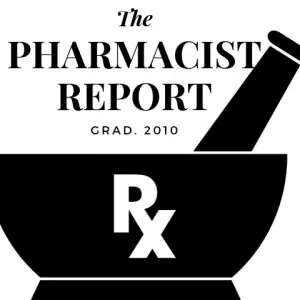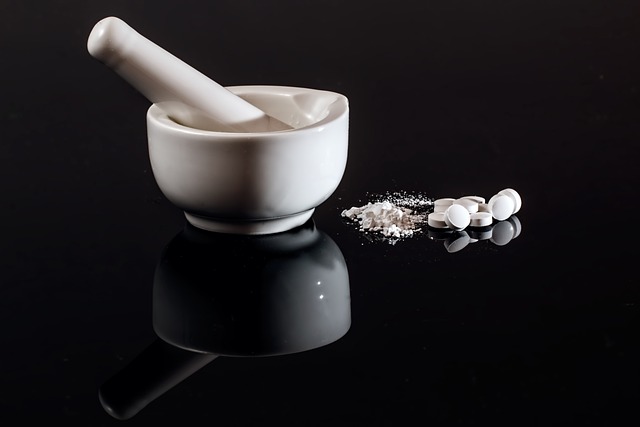Choosing a career path in healthcare can be a difficult decision, particularly when it comes to deciding between pharmacy and pharmaceutical science. Both fields are integral to the healthcare industry, but they differ in their focus and required education.
Understanding the differences between these two paths can help individuals make informed decisions about their career and educational goals. Pharmacy is a patient-centered field that involves the dispensation of medication and providing counseling to patients on the proper use of their medications.
On the other hand, pharmaceutical science is focused on the development and improvement of medicines and their delivery methods. While both fields are essential components of the healthcare industry, they require different educational paths and have distinct areas of specialization.
This article will explore the differences between pharmacy and pharmaceutical science, including their career paths, specializations, and educational resources, to help individuals determine which path is best suited to their interests and goals.
Career Paths
Pharmacists and pharmaceutical scientists have distinct career paths, with pharmacists providing direct patient care and pharmaceutical scientists working in labs or offices to develop new medicines or improve medicine delivery.
Pharmacists work as part of a healthcare team and are responsible for dispensing medication, providing patient counseling, and monitoring patient health. They also collaborate with other healthcare professionals to ensure the best possible patient care. A Doctor of Pharmacy (Pharm.D.) degree and state licensure exam are required to become a pharmacist.
On the other hand, pharmaceutical scientists work in research and development, conducting studies to develop new drugs or improve existing ones. They also work on improving the delivery of medication, such as developing new drug delivery methods or creating more effective dosages. Pharmaceutical scientists typically hold graduate degrees and work in a variety of settings, including pharmaceutical companies, academic research institutions, and government agencies.
Job opportunities for pharmaceutical scientists may be more limited than for pharmacists, but they often come with a higher salary.
Specializations
Various areas of expertise exist within the field of pharmaceutical science, allowing for specialization in specific areas of pharmaceutical research and development. These specializations include:
- Pharmacokinetics and Pharmacodynamics: This area focuses on how drugs are absorbed, metabolized, and eliminated by the body, as well as how drugs interact with their targets in the body.
- Drug Formulation and Delivery: This area focuses on developing new drug formulations and delivery methods to improve drug efficacy and patient compliance.
- Medicinal Chemistry: This area focuses on designing and synthesizing new molecules to be used as drugs, as well as modifying existing drugs to improve their efficacy and reduce their side effects.
Pharmacists also have various specializations within their field, including ambulatory care, critical care, and oncology. These specializations allow pharmacists to focus on specific patient populations and disease states, providing specialized care and expertise.
Overall, the specializations within pharmacy practice and pharmaceutical research fields provide opportunities for individuals to pursue their interests and make significant contributions to the field.
Education and Resources
One important aspect to consider when pursuing a career in the field of pharmaceuticals is the availability of education and resources.
For those interested in becoming a pharmacist, there are various pharmacy programs available that offer a Doctor of Pharmacy (Pharm.D.) degree and prepare individuals for state licensure exams. These programs provide in-depth knowledge and training in various areas of pharmacy practice, including drug interactions, patient counseling, and medication management.
Additionally, high school students interested in pharmacy can utilize resources such as the BS Pharmacy Science List and the Pharmacy Is Right for Me website to learn more about the field and potential career paths.
On the other hand, those interested in pharmaceutical research opportunities often require a graduate degree in pharmaceutical science or a related field. These programs provide education and training in areas such as pharmacology, drug development, and biotechnology. Students in these programs learn how to conduct research, analyze data, and develop new medicines or improve medicine delivery methods.
Resources such as the Pharmaceutical Graduate Education page can provide information on available programs and potential career paths in pharmaceutical research. Overall, considering the education and resources available in both pharmacy and pharmaceutical science can help individuals make informed decisions about their career paths.
Summary and Conclusion
Pharmacy and pharmaceutical science are two closely related fields that deal with medicines and the healthcare industry. While both fields have their similarities, there are distinct differences in terms of education, career paths, and responsibilities. In this article, we will compare pharmacy and pharmaceutical science to help you decide which career path is best for you.
Pharmacy, as a profession, focuses on the safe and effective use of medicines. Pharmacists are a vital part of the healthcare team and work with patients, doctors, and other healthcare professionals to ensure that the medicines prescribed to patients are appropriate and safe. To become a pharmacist, you must earn a doctor of pharmacy (Pharm.D.) degree and pass a state licensure exam. Pharmacists work in a variety of settings, including community pharmacies, hospitals, government agencies, and research institutions.
On the other hand, pharmaceutical science is a field that deals with the development, testing, and production of medicines. Pharmaceutical scientists conduct research to discover and develop new drugs and improve existing ones. These scientists work closely with chemists, biologists, and other researchers to develop new medicines, study their effects, and ensure their safety. To become a pharmaceutical scientist, you may need to complete a graduate (master’s or Ph.D.) degree after college. Pharmaceutical scientists work in various industries, including pharmaceutical companies, government agencies, and research institutions.
If you’re interested in both patient care and research, you can pursue a dual-degree program (Pharm.D./Ph.D.) or additional training after completing a Pharm.D. degree. This will allow you to work in both practice and research roles, including clinical trial research with patients.
For high school students who are interested in becoming a pharmacist or pharmaceutical scientist, there are pre-pharmacy and other feeder programs offered by AACP member institutions. You can also check out the BS Pharmacy Science List to learn more about pharmaceutical science and the Pharmaceutical Graduate Education page to find common areas of study, degrees, and careers for pharmaceutical scientists.
In conclusion, whether you choose pharmacy or pharmaceutical science as your career path, both fields offer exciting opportunities to make a difference in people’s lives. Your decision will depend on your interests, skills, and career goals. If you enjoy working with patients and want to have a direct impact on their health, pharmacy may be the right choice for you. If you’re passionate about research and want to develop new medicines that can save lives, pharmaceutical science may be the best fit.
Frequently Asked Questions
What is the job outlook for pharmacists and pharmaceutical scientists?
The job outlook for pharmacists and pharmaceutical scientists is positive with a projected growth rate of 6% and 5% respectively. Demand for both professions will continue to increase due to an aging population and advancements in medicine.
How do salaries compare between pharmacists and pharmaceutical scientists?
Pharmacist vs. scientist salaries vary based on factors such as job responsibilities and experience. According to data from the Bureau of Labor Statistics, as of May 2020, pharmacists had a median annual salary of $128,710, while pharmaceutical scientists had a median annual salary of $105,230.
Are there any current trends or advancements in the field of pharmacy or pharmaceutical science?
Recent developments in the field of pharmacy and pharmaceutical science include emerging technologies such as 3D printing, precision medicine, and gene therapy. These advancements have the potential to revolutionize drug development and delivery, leading to more personalized and effective treatments.
What are some common challenges faced by pharmacists and pharmaceutical scientists in their careers?
Pharmacists and pharmaceutical scientists face daily challenges such as managing complex medication regimens and navigating ethical dilemmas. Both professions require strong communication skills and staying up-to-date with advances in medicine.
Can someone with a degree in pharmacy also work in pharmaceutical research, or vice versa?
As pharmacy and pharmaceutical research require different skill sets, one cannot work in both fields without additional education. Pharm.D. degree is required for pharmacists, while a graduate degree is often required for research positions. Career opportunities and education requirements differ between the two paths.


